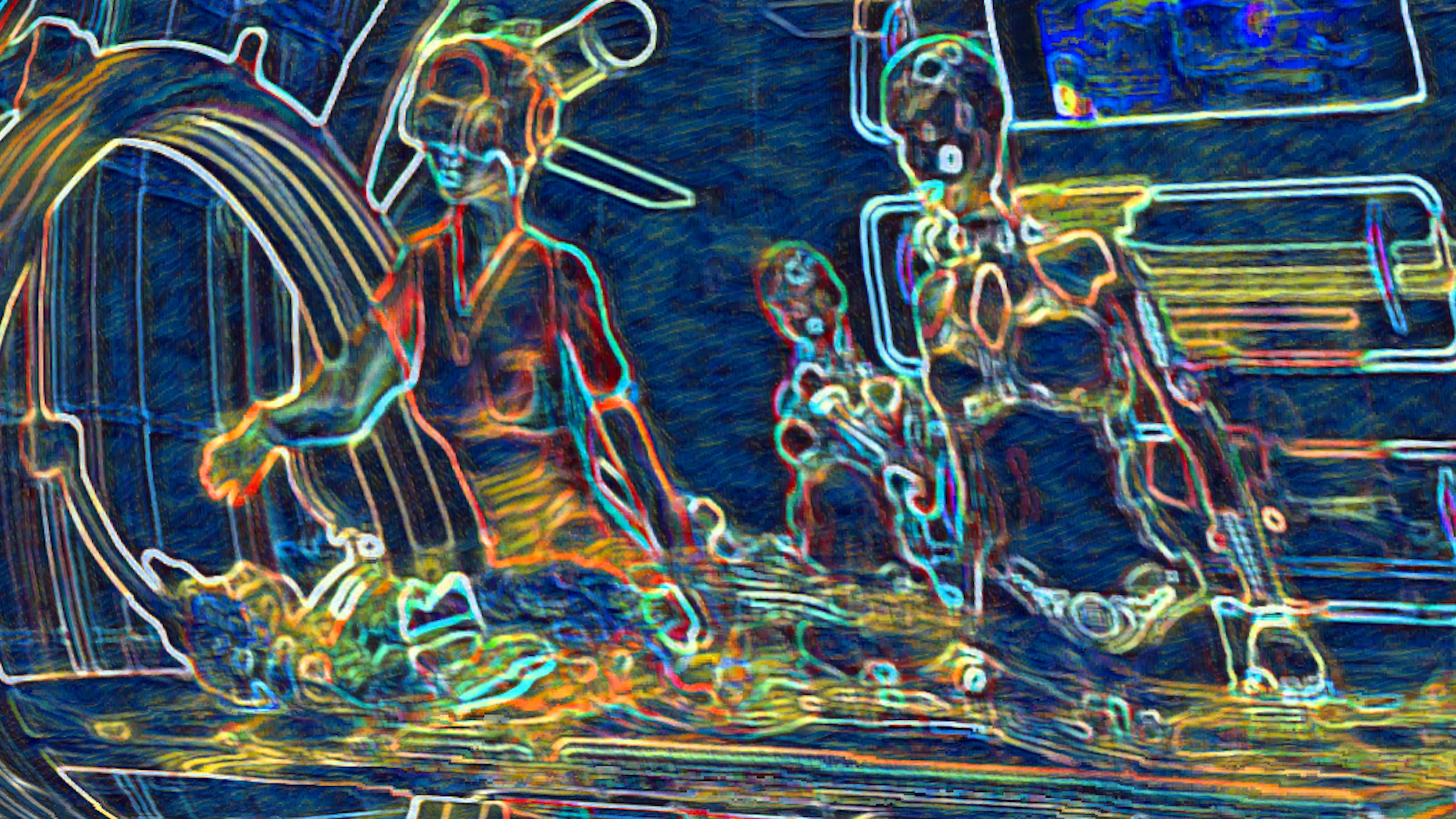Burnout: How to escape toxic work culture and build a better life

- In his new book, The End of Burnout: Why Work Drains Us and How to Build Better Lives, essayist and journalist Jonathan Malesic uses his firsthand experience with professional burnout to explore why work drains us and how we change it.
- According to Malesic, the Protestant work ethic has warped our ideas about the relationship between dignity and work, contributing to inhumane working conditions.
- Malesic argues that we need to improve working conditions and rethink the relationship between dignity and work.
The following is an excerpt from The End of Burnout: Why Work Drains Us and How to Build Better Lives, written by Jonathan Malesic. This excerpt was published with permission from the author.
Before I became a professor, I was a parking lot attendant. I had just finished my PhD program and couldn’t land an academic job. But I knew a few guys who worked at a lot across the street from the university, and they introduced me to their boss. Before long I was collecting money in a small, weathered booth behind a pizza place. Every day, I sat in the driver’s seats of the Volvos and Beamers of the professors I desperately wanted to be like, and yet the work I did felt as distant from theirs as possible.
I loved it. The work was easy, even fun. My boss cared about his employees and treated us well; he knew the job was not our whole lives. My coworkers were bright undergrads and grad students, several of whom were covered in tattoos, rode fixed-gear bicycles, and played obscure hardcore punk rock in the booth. A few were in bands themselves. I was older and un-inked, drove a bright blue Honda Civic, and read Kierkegaard. They called me the Pope, because as a religious studies PhD, I was the closest thing to a spiritual authority they knew. During the year I worked at The Corner Parking Lot, I fell in love with a woman who was also in a liminal stage of her career, and she brought me coffee and pastries to help me through my night shifts. She’s now my wife.
The contrast between my happiness in a low-status job and my misery in a tenured academic position points toward a way to end burnout culture. I expected being a college professor would fulfill me not just as a worker but as a human being. I expected it to be my complete identity, my vocation. Few jobs could ever live up to those expectations, though I had certainly absorbed the notion that the right academic job could. Of course, it didn’t live up to them, and I labored for years before the disappointment and futility became so much to bear that I quit.
By contrast, I had no lofty ideal of work as a parking lot attendant. I thought of it as just an undemanding way to make rent money. I didn’t expect to “engage” with the job. There is no real possibility of experiencing “flow” if you’re a parking lot attendant. There is no progressive challenge to collecting money in a booth. No one gets better at it over time. The only people who give you feedback are irate drivers trying to escape their fees. When I worked that job, I never sank so far into the zone that I forgot to eat; in fact, I spent much of my time in the booth, and much of my conversation with my coworkers, deciding what to order for lunch. (Usually pizza.) The job did nothing to foster the absorption in a task that supposedly makes work productive and the worker fulfilled. It was perfect.
I am convinced that my lack of engagement with work was the paradoxical reason I was so happy during my year as a parking lot attendant. The job resisted any effort to make it morally or spiritually meaningful. It did not promise dignity, growth in character, or a sense of purpose. It never held out the possibility of the good life. Because I couldn’t find fulfillment through my job, I had to look for it elsewhere. And I found it: in writing, in friendships, in love.
My job at the parking lot did more than just stay out of the way of my flourishing as a person. My ideals for the work were low, but its conditions were pretty good. The pay was decent. My fellow attendants quickly became friends. Our boss trusted us with his business, and we trusted each other. We all adhered to an unwritten rule that if you were near the lot, you would swing by the booth to see if the attendant on duty needed a break or a coffee or just someone to talk to. There were occasional conflicts with customers over how long their parking validation lasted or how much they owed us for leaving their cars overnight, but there were many more friendly conversations with regular customers that continued, in thirty-second increments through open car windows, for months. A documentary about the lot, The Parking Lot Movie, emphasizes the conflicts and the potential for burnout, but my experience was generally better than what director Meghan Eckman depicts on screen.
I am just one worker; I want to be careful not to overdraw any conclusions about work itself from experience that may be peculiar to me. But my experience as both a professor and a parking lot attendant does fit the model of burnout my research has led me to, namely, that the cultural ideals we bring to our jobs have a major effect on how burnout affects us.
So many workers are at risk for burnout because the degraded reality of our jobs since the 1970s coincides with a too-lofty ideal of work. The gap between our ideals and our experience at work is too great for us to bear. That means, if we want to halt the burnout epidemic, we need to close the gap, both by improving working conditions and lowering our ideals. In chapters 7 and 8, I will introduce you to people who labor in more humane conditions. But because our burnout culture results as much from our ideas as from the concrete facts of our jobs, we will need different ethical and spiritual expectations for work as much as we will need better pay, schedules, and support. In fact, we will need a new set of ideals to guide us as we construct those conditions.
The Protestant ethic that we carried into the postindustrial era helped create the vast wealth of the countries that are today most concerned about burnout. But it also valorized a destructive ideal of working to the point of martyrdom. To overcome burnout, we have to get rid of that ideal and create a new shared vision of how work fits into a life well lived. That vision will replace the work ethic’s old, discredited promise. It will make dignity universal, not contingent on paid labor. It will put compassion for self and others ahead of productivity. And it will affirm that we find our highest purpose in leisure, not work. We will realize this vision in community and preserve it through common disciplines that keep work in its place. The vision, assembled from new and old ideas alike, will be the basis of a new culture, one that leaves burnout behind.
We have to form this vision soon, because automation and artificial intelligence are poised to unsettle human labor in the coming decades. Once humans are only worth employing in limited roles, we won’t burn out, but the system of meaning we have built on work will stop making sense.
· · ·
To build a new model of the good life, we need to dig a foundation deeper than the noble lies that make us work to assure ourselves of our value. The first point to challenge, then, is the basic promise that work is the source of dignity. Dignity is a tricky word. Everyone agrees that the dignity of work is worth defending, but as with burnout itself, there is no agreement about what the dignity of work means. Sociologically, it means the right to have a voice, or to count, in your society. Dignity can also mean something beyond that: the ability not just to count but to hold your head up high, to earn others’ esteem. In the United States, politicians on both right and left invoke the dignity of work to justify labor and public welfare policies. There’s good reason for them to do so; the concept resonates with a citizenry that thinks of itself as hardworking. But beneath the good feeling Americans get when they hear the phrase “the dignity of work,” the policies these officials propose run in opposite directions. Appeals to the dignity of work often justify the inhumane working conditions that contribute to burnout.
Conservative politicians and writers in the United States talk about the dignity of work when arguing for looser labor regulations and reduced social welfare protections for people who do not work. Because there is dignity in work, they say, they want to eliminate artificial barriers to employment like minimum wage laws. When, in 2019, the Trump administration tightened rules that require adults who receive public food assistance to have jobs, Secretary of Agriculture Sonny Perdue, whose department oversaw the program, claimed that stricter work requirements would “restore the dignity of work to a sizable segment of our population.” More liberal politicians have made similar arguments. President Bill Clinton, in signing a welfare reform bill in 1996, stated that unconditional public aid “exil[ed]” recipients “from the world of work.” Work, Clinton continued, “gives structure, meaning and dignity to most of our lives.” It’s certainly true that workers feel a measure of pride in having a job and providing for themselves and their families. But Perdue’s and Clinton’s approach also depresses wages and undercuts workers’ ability to demand better conditions. It is as if dignity were reward enough.
This pro-market view of the dignity of work isolates workers as individuals and then puts pressure on them to keep earning their dignity, because their dignity is not assured in advance. This view also encourages derision for anyone who cannot find work, or who cannot work at all due to age, illness, or disability. It puts additional pressure on workers who cannot rely on their identity as white or male or native-born for social esteem. And as we saw in the case of Booker T. Washington in chapter 5, people become anxious when their dignity is perpetually in question. They’ll do anything to hang onto a job not only because it’s their economic lifeline, but because their social standing is at stake. In a society that views work as the means to prove their value, they’re going to work harder, exposing themselves to the physical and psychological risks of labor, including burnout. All of this benefits bosses and owners of capital—at least, it benefits them right up until workers’ ability to do their jobs degrades and their productivity declines. Even then, so long as there are replacement workers available, the cost of churning and burning through employees eager to prove their dignity is relatively small.
Pro-labor politicians in the United States, most of them Democrats, take a different approach to the dignity of work. For them, dignity is not something people attain through their jobs, but something jobs attain when they meet workers’ needs. That means the dignity of work is less a permanent state than a political goal worth fighting for. Under this view, the labor people perform ought to be dignified with decent wages and protections for workers. For example, Ohio Senator Sherrod Brown based an entire slate of policy proposals, from a higher minimum wage to paid sick leave to education funding, on the idea of the dignity of work. “Dignity of work means hard work should pay off for everyone, no matter who you are or what kind of work you do,” reads the website for Brown’s 2019 Dignity of Work Tour. “When work has dignity, everyone can afford health care and housing. . . . When work has dignity, our country has a strong middle class.”
The call for work, and not the worker, to gain dignity is a first step toward closing the gap that causes burnout. It takes the pressure off workers to prove themselves and to hold their ideals and conditions in alignment, even as standard postindustrial business practices try to drive them apart. Employers, with the right push from government, have the power to dignify the work people do; that means they bear the responsibility for closing the gap from the working-conditions side. The culture as a whole, then, needs to push from the other, the side of ideals.





